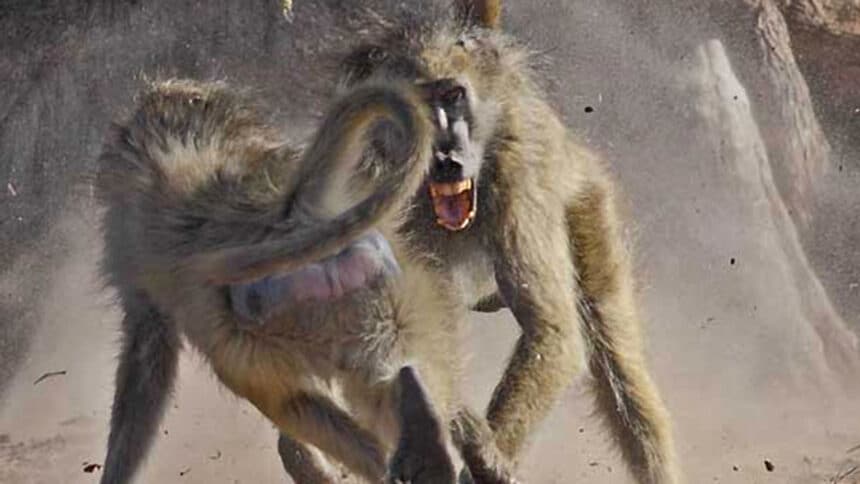Residents of Kasane and Kazungula are living in fear of colonies of baboons that have laid siege to the two tourism townships since the start of the year.
Moving in huge groups, some numbering over 200, the pesky primates have caused widespread chaos, wreaking havoc in farms, homesteads and businesses across the area.
The baboons have also been blamed for vandalism at the One Stop Kazungula Border Post as well as several buildings.
Following complaints from residents, the Department of Wildlife and National Parks (DWNP) has sprung into action, launching an operation to drive the stubborn mammals away from the village centers.
This, however, is proving no easy task, with the baboons extremely reluctant to relocate!
“A baboon is very observant. They learn human behavior and always find a way to return to the city centre despite the efforts made,” revealed Regional Wildlife Officer, Batshani Nduchwa.
Close evolutionary relatives to humans, on average baboons have a genetic similarity to people of 94 percent.
“They are attracted to easy pickings in the city and homesteads. Finding food in the wild can be a challenge so these baboons target shopping centres, dustbins and gardens for food,” explained Nduchwa.
In 2021, the DWNP undertook an operation to relocate warthogs from public areas to the Chobe National Park (‘Mathinthinyane on the Move’, 17 June 2021).
However, Ndochwa says this approach is far too costly and unsustainable.
“It is extremely expensive. We’ve also realized that capturing animals and relocating them only frees space up for others to occupy. This means we may have to capture baboons every week,” he said.
The Regional Wildlife Officer told The Voice scaring the baboons away through gunshots seems to be the most effective deterrent.
“They’re accustomed to human behaviours and have become very stubborn, and aggressive to people. They only run away at the sight and sound of gunshots,” he said.














